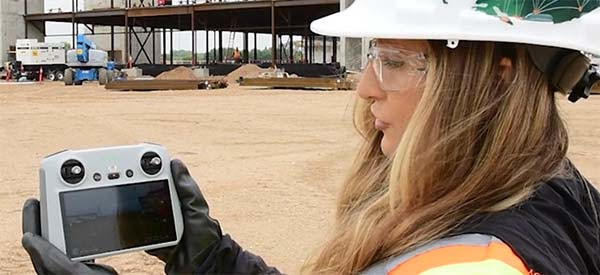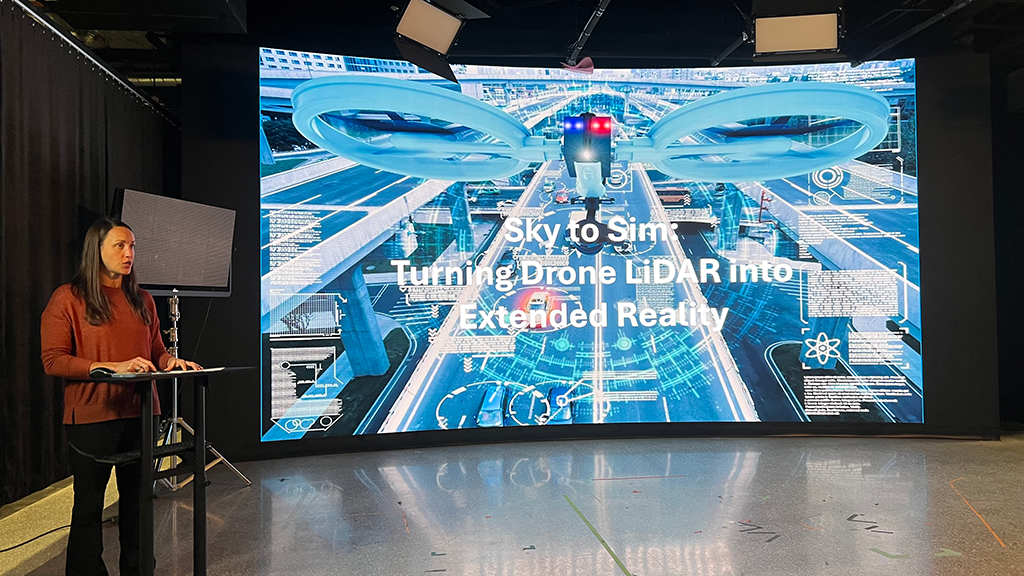The Manitoba °µÍĝ½ûÇĝion Sector Council (MCSC) is teaching small and medium-sized contractors what it is terming âsky skills,â using drones to make their work easier, more efficient and opening the door to new opportunities.  Â
âThey are seeing the economic value in this,â said MCSC executive director Carol Paul, as more out-of-province contractors are arriving and using the technology and small or mid-sized contractors have problems connecting with those using that skill set. Â
A provincial grant of $219,000 provided in 2024-2025 made it possible to launch the SkySkills program which saw 22 individuals in 2024 take the basic drone course with nine then successfully passing Transport Canadaâs drone license.Â
The MCSC has also been given tentative funding for further training in 2025-2026 and 2026-2027. A total of 60 individuals (30 each year) will train up on drones; learning how to capture a range of data and the analysis that can be done to gain the best outcome.
The program offered by the MCSC is unique as the organization has put together a college accredited program with webinar learning and practical applications in three modules. The program has the potential to be used in other jurisdictions.
âWe would be willing to work with other provinces,â Paul said.
The program has been developed specifically for the construction sector and has been several years in the planning stages.

Paul said the MCSC is partnering with New Media Manitoba (NMM) and Ohio-based Critical Ops.
NMM is the sector council for information communications and digital technologies and non-profit association serving Manitobaâs interactive digital media industry.
NMM is using Epic Gamesâ Unreal Engines, a video game development tool and software development company, to show how constructors can plan and execute projects based on collected data and how that data can be manipulated to gain the various outcomes. NMM has extensive labs where individuals can view collected data.
The programs are interactive, said Paul.
âIt is like having an avatar.â
Critical Ops is providing expertise on drone technology and has written the educational components of the SkySkills program, which prepares individuals to write for a license. Critical Ops owner Chelsea Treboniak said the program brings together drone technology with programs able to manipulate a range of collected data, whether it is photos, radar or LiDAR.
âWe want to show the value of the data that is collected,â said Treboniak.
The drones are using LiDAR, or Light Detection and Ranging Technology, and it offers efficiencies, cutting days off manually surveying a large area or road. But, drones can also capture a visual feed, images of damaged or dangerous structures, perform site inspections and also provide a visual record of work in progress. Â
Paul said other scanning technologies can also come into play, such as ground penetrating radar. In northern regions, ice-roads provide for access for trucks and equipment over lakes. Ground penetrating radar can be used via drones walking onto the ice. Radar can also be used to determine if a contractor has buried infrastructure at the appropriate depths. Â
Larger companies have been using drone technology in Manitoba for years, said Paul, but the technology has not trickled down into the hands of smaller or medium-sized construction companies. Many of these companies are inter-generational and work conventionally or are reluctant to assume new technology costs, she said.
Paul has been working to bring the technology down to grassroots and play catch up with the U.S.
âCanadian companies are 10 years behind what is happening in the U.S.,â said Paul, adding Manitobaâs construction industry is also behind what is happening in other industries such as agricultural.Â
Paul said a 2021 survey found only four per cent of construction companies were using new technology compared to 96 per cent in the agricultural sector. It was the trigger that started Paul looking at bringing drone technology forward to contractors and building an education system. Â
 âWe had to train the trainers,â said Paul.
The MCSC drew from larger Canadian companies such as Bird °µÍĝ½ûÇĝion, PCL °µÍĝ½ûÇĝion as well as Manitoba Transportation and Infrastructure, all drone technology users.
In early 2024, the MCSC introduced a free course helping individuals to achieve basic drone certification. Â
The course was delivered in three Zoom modules in early February and in-person for the last two models in March. The training will cover three core steps: introduction to drone basics, practical application and a practicum. Â
Of the nine that were certified from the basic drone course, one is going forward to the advanced drone training, which is being offered in 2025. The advanced drone testing is intensive.
âIt is like being a pilot and incredibly difficult,â Paul said.
Paul said she is planning to acquire some drones that can be loaned out to the industry to further integrate the technology into the workplace.





Recent Comments